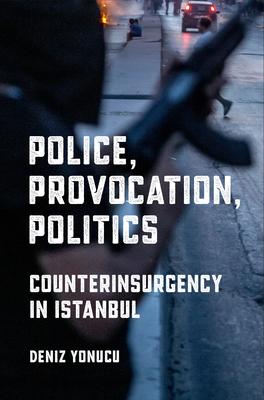In Police, Provocation, Politics, Deniz Yonucu presents a counterintuitive analysis of contemporary policing practices, focusing particular attention on the incitement of counterviolence, perpetual conflict, and ethnosectarian discord by the state security apparatus. Situating Turkish policing within a global context and combining archival work and oral history narratives with ethnographic research, Yonucu demonstrates how counterinsurgency strategies from the Cold War and decolonial eras continue to inform contemporary urban policing in Istanbul. Shedding light on counterinsurgency's affect-and-emotion-generating divisive techniques and urban dimensions, Yonucu shows how counterinsurgent policing strategies work to intervene in the organization of political dissent in a way that both counters existing alignments among dissident populations and prevents emergent ones.
Yonucu suggests that in the places where racialized and dissident populations live, provocations of counterviolence and conflict by state security agents as well as their containment of both cannot be considered disruptions of social order. Instead, they can only be conceptualized as forms of governance and policing designed to manage actual or potential rebellious populations.
